Top 25 richest countries in Africa in 2024: rated by GDP
Africa is a powerhouse of resources and innovation. In recent years, much growth and development have been witnessed in most of the 54 countries on the continent. Some countries' economies have even risen above their expected growth rates. Discover the 25 richest countries in Africa below.
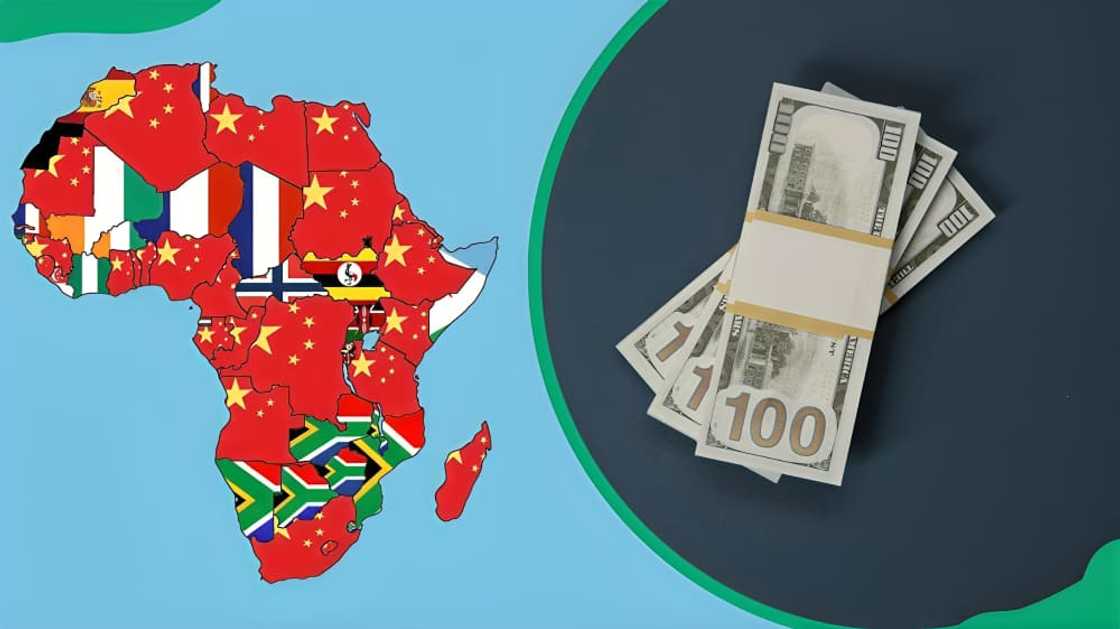
Source: UGC
TABLE OF CONTENTS
- Richest countries in Africa in 2024
- 1. Egypt - $476.75 billion
- 2. Nigeria - $472.62 billion
- 3. South Africa - $405.27 billion
- 4. Algeria - $195 billion
- 5. Morocco - $130.91 billion
- 6. Ethiopia - $126.78 billion
- 7. Kenya - $113.42 billion
- 8. Angola - $106.78 billion
- 9. Tanzania - $75.73 billion
- 10. Ghana - $73.77 billion
- 11. Côte d'Ivoire - $70.02 billion
- 12. Democratic Republic of Congo - $64.72 billion
- 13. Sudan - $51.66 billion
- 14. Tunisia - $46.30 billion
- 15. Libya - $45.75 billion
- 16. Uganda - $45.57 billion
- 17. Cameroon - $43.64 billion
- 18. Zambia - $29.16 billion
- 19. Senegal - $27.68 billion
- What are the top 20 richest countries in Africa?
- What are the 10 strongest economies in Africa?
- What are the richest countries in Africa by order?
- What are the richest countries in Africa per capita?
- What is the richest country in West Africa?
- Why is Nigeria the richest country in Africa?
- What is the most powerful African country?
- Which country has the richest people?
This article has compiled a list of the wealthiest countries in Africa based on the World Bank's records of 2022/23 GDPs per country. GDP (Gross Domestic Product) means a country's total goods and services.
Richest countries in Africa in 2024
The best economies in Africa belong to the wealthiest countries on the continent. These economies thrive because of precious metals, fertile soil, excellent agricultural climate, and water bodies, among other factors. These are the richest countries in Africa by GDP data for 2022/23:
| Rank | Country | GDP - 2022/23 (USD) |
| 1. | Egypt | $476.75 billion |
| 2. | Nigeria | $472.62 billion |
| 3. | South Africa | $405.27 billion |
| 4. | Algeria | $195.00 billion |
| 5. | Morocco | $130.91 billion |
| 6. | Ethiopia | $126.78 billion |
| 7. | Kenya | $113.42 billion |
| 8. | Angola | $106.78 billion |
| 9. | Tanzania | $75.73 billion |
| 10. | Ghana | $73.77 billion |
| 11. | Côte d'Ivoire | $70.02 billion |
| 12. | DRC | $64.72 billion |
| 13. | Sudan | $51.66 billion |
| 14. | Tunisia | $46.30 billion |
| 15. | Libya | $45.75 billion |
| 16. | Uganda | $45.57 billion |
| 17. | Cameroon | $43.64 billion |
| 18. | Zambia | $29.16 billion |
| 19. | Senegal | $27.68 billion |
| 20. | Botswana | $20.36 billion |
| 21. | Mali | $18.83 billion |
| 22. | Burkina Faso | $18.82 billion |
| 23. | Mozambique | $18.41 billion |
| 24. | Benin | $17.40 billion |
| 25. | Madagascar | $15.3 billion |
There are a lot of untapped resources that are yet to be fully explored in Africa. This provides room for most countries on the continent to attain more economic growth. Below are the most prosperous African countries, according to the GDP for 2022/23:
1. Egypt - $476.75 billion
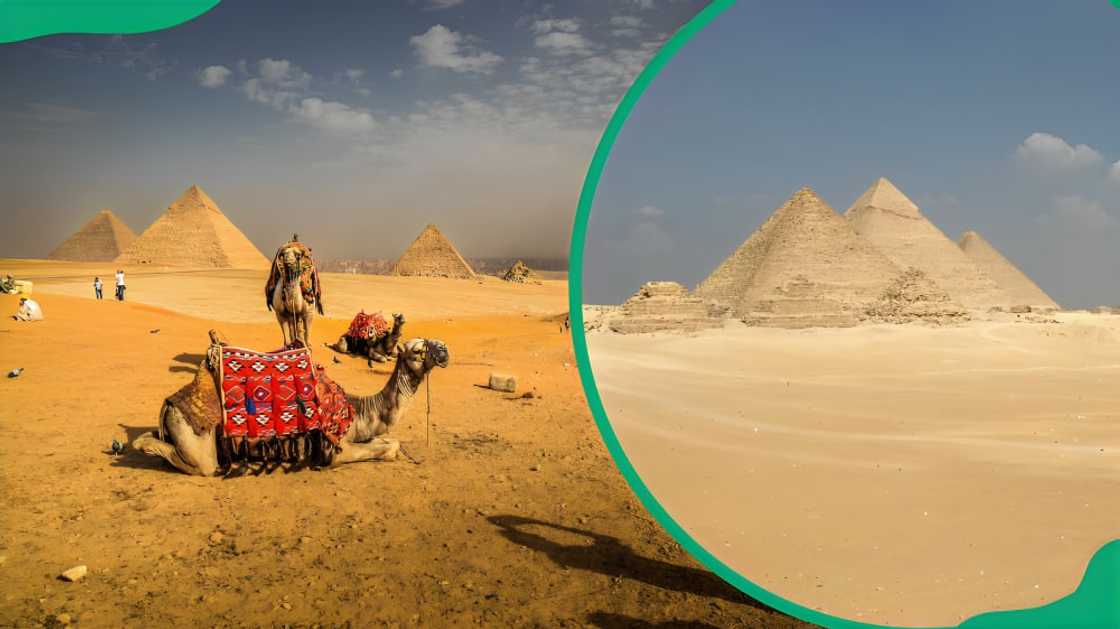
Source: UGC
- Capital: Cairo
- Official language: Arabic
- Dialing code: +20
- Currency: Egyptian Pound
- Population: 110.99 million (World Bank, 2022/23)
- GDP: 476.75 billion USD (World Bank, 2022/23)
Egypt has been working hard towards positive economic growth and aims to become the richest country in Africa. The state focuses on wholesale and retail trade, construction, tourism, and gas extractives. Egypt's economy is impressive. They achieved a GDP of $476.75 billion in 2022/23, a 6.6% increase from 2021.
2. Nigeria - $472.62 billion
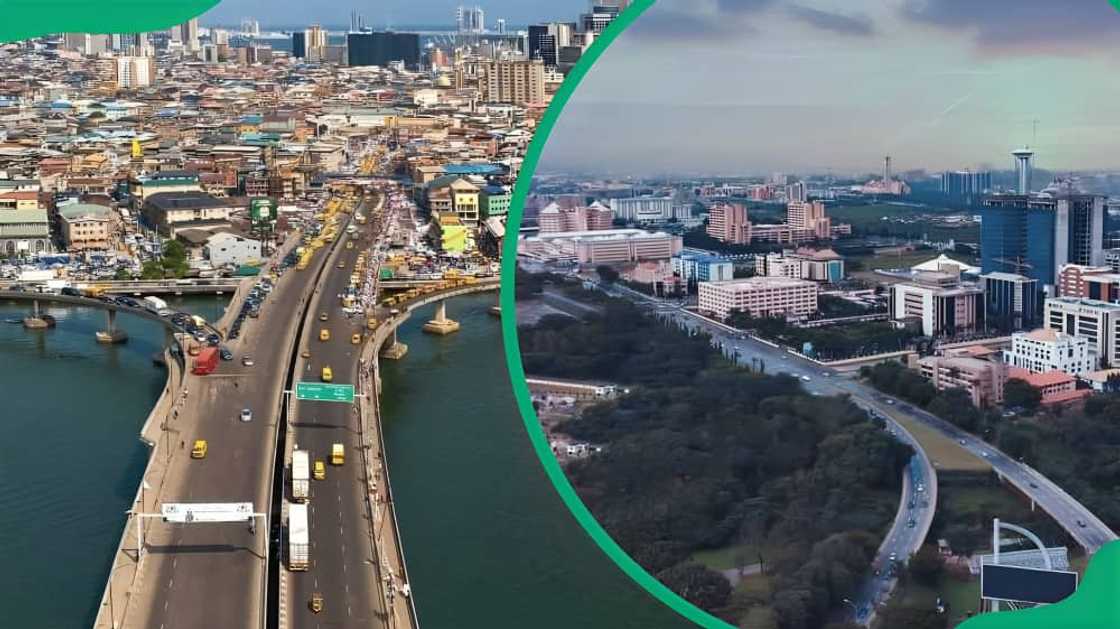
Source: UGC
- Capital: Abuja
- Official language: English
- Dialing code: +234
- Currency: Nigerian Naira
- Population: 218.54 million (World Bank, 2022/23)
- GDP: 472.62 billion USD (World Bank, 2022/23)
Nigeria has dominated the list of richest countries in Africa for over half a decade. The nation achieved a GDP of $472.62 billion in 2022/23. The state is bestowed with bountiful natural resources like crude oil. For instance, Nigeria produced over 1.4 million barrels of oil daily in 2021. Apart from oil, it produces natural gas, limestone, niobium, lead, arable land, tin, iron ore, and zinc.
3. South Africa - $405.27 billion

Source: UGC
- Capitals: Cape Town, Pretoria, Bloemfontein
- Official languages: Afrikaans, English, Southern Sotho, Xhosa, Zulu, Northern Sotho, Venda, Tswana, Tsonga, Ndebele, Swati
- Dialing code: +27
- Currency: South African rand
- Population: 59.89 million (World Bank, 2022/23)
- GDP: 405.27 billion USD (World Bank, 2022/23)
South Africa's GDP of $405.27 billion in 2022/23 makes it one of the African countries with the highest GDP value. The nation's financial and manufacturing sectors are among the best in Africa. Its main exports include gold, platinum metals, and iron ore. South Africa's most significant iron ore trade partner is China, and most of Africa's wealthiest people come from Mzansi.
4. Algeria - $195 billion
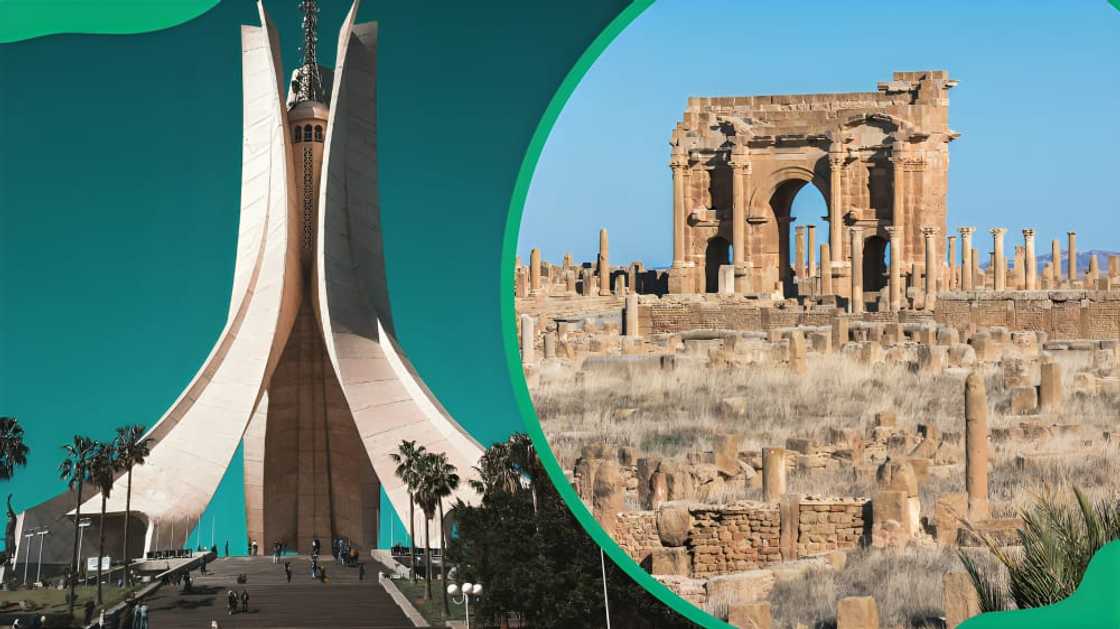
Source: UGC
- Capital: Algiers (El Djazaïr)
- Official languages: Arabic, Standard Algerian Berber
- Dialing code: +213
- Currency: Algerian Dinar
- Population: 44.90 million (World Bank, 2022/23)
- GDP: 195 billion USD (World Bank, 2022/23)
Algeria's rich natural resources, like oil and natural gas, enable it to achieve enormous economic growth despite frequent political instability. Political uncertainty and corruption have slowed down the hydrocarbon sector. Despite these challenges, the country continues to attain a high GDP. In 2022/23, it achieved $195 billion.
5. Morocco - $130.91 billion
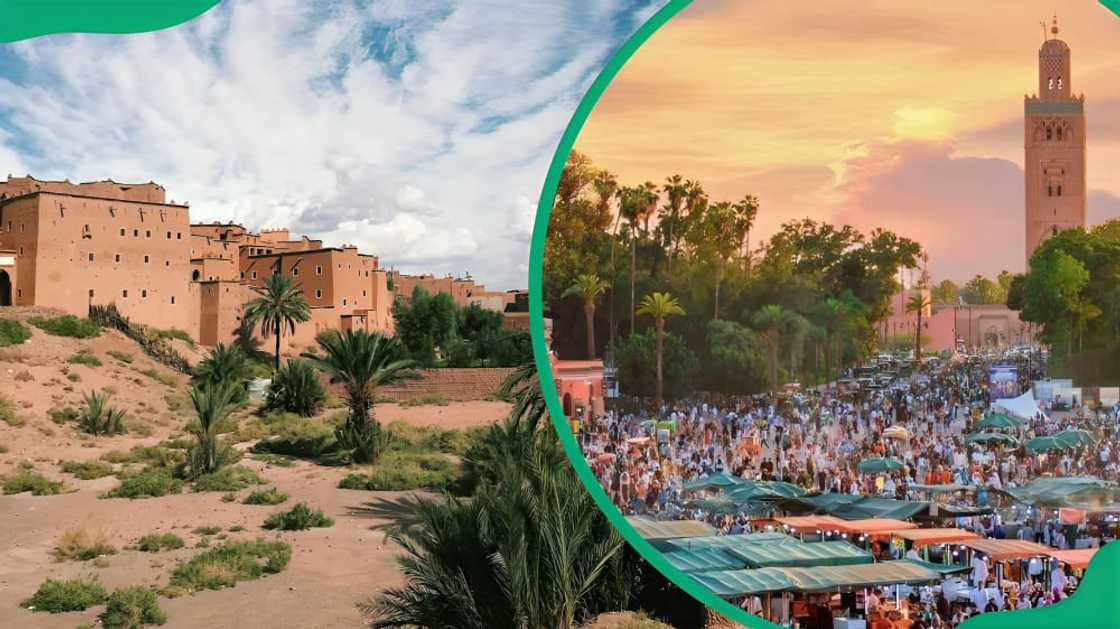
Source: UGC
- Capital: Rabat
- Official languages: Arabic, Standard Moroccan Berber
- Currency: Moroccan Dirham
- Population: 37.46 million (World Bank, 2022/23)
- GDP: 130.91 billion USD (World Bank, 2022/23)
Morocco's 2022/23 GDP record of $130.91 billion was a 1.3% increase. The country's ceremony heavily depends on agriculture and the service industries. Meanwhile, its automotive industry is growing rapidly due to an increase in plant production.
6. Ethiopia - $126.78 billion
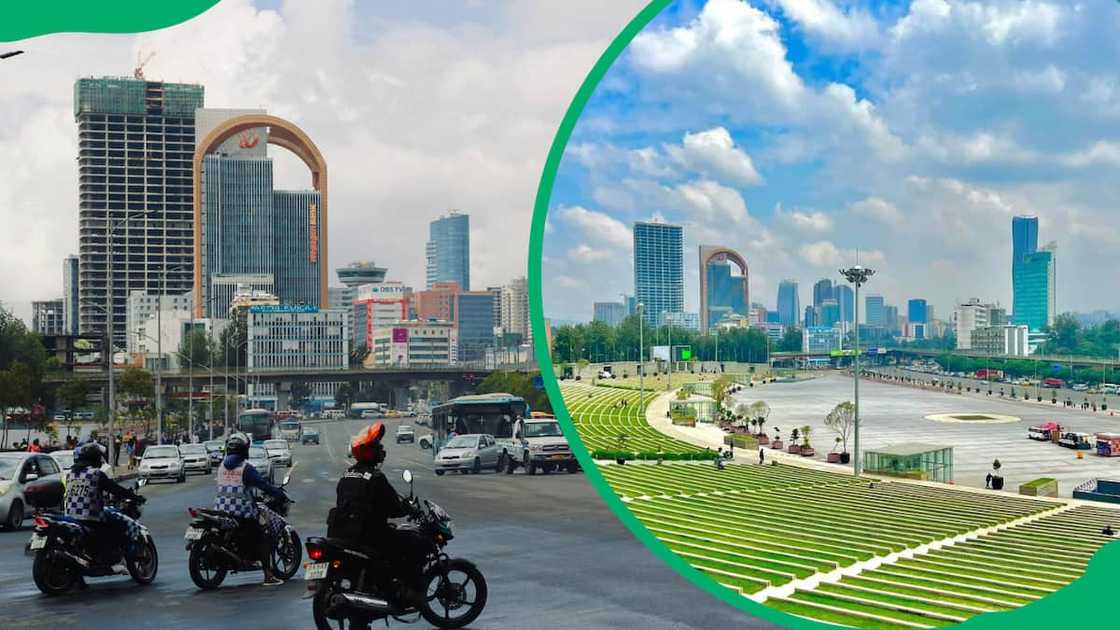
Source: UGC
- Capital: Addis Ababa
- Official languages: Amharic, Somali, Oromo, Tigrigna, Afar
- Dialing code: +251
- Currency: Ethiopian Birr
- Population: 123.38 million (World Bank, 2022/23)
- GDP: 126.78 billion USD (World Bank, 2022/23)
Ethiopia's GDP for 2022/23 was $126.78 billion, an estimated 5.3% growth. The nation has embraced reforms to improve its economy. Nonetheless, political and social instability and consumer inflation could slow its GDP if proper care is not taken.
7. Kenya - $113.42 billion

Source: UGC
- Capital: Nairobi
- Official languages: English, Swahili
- Dialing code: +254
- Currency: Kenyan Shilling
- Population: 54.02 million (World Bank, 2022/23)
- GDP: 113.42 billion USD (World Bank, 2022/23)
Kenya has been recording significant economic growth in the Sub-Saharan region, making it one of the best economies in Africa. The country's GDP of $113.42 billion in 2022/23 was a 4.8% economic growth. Kenya's booming economy results from political stability, favorable laws for foreign inventors, and other factors. Its strongholds are agriculture, technology, and financial services.
8. Angola - $106.78 billion
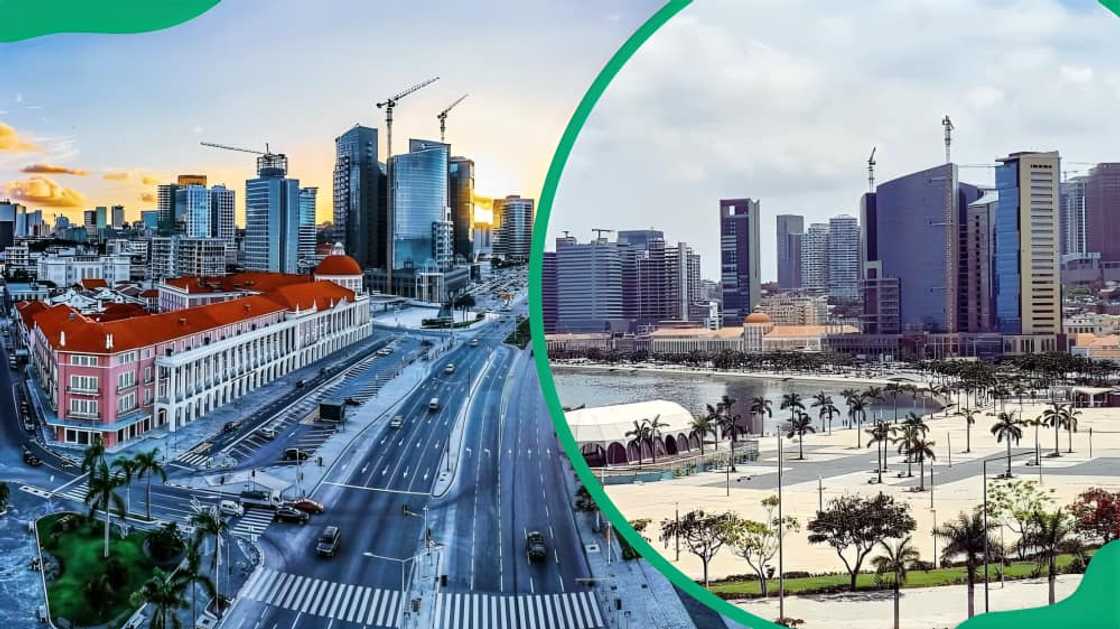
Source: UGC
- Capital: Luanda
- Official language: Portuguese
- Currency: Angolan Kwanza
- Population: 35.59 million (World Bank, 2022/23)
- GDP: 106.78 billion USD (World Bank, 2022/23)
Angola has been improving its structural and political reforms to balance its economy. In 2022/23, they achieved a GDP of $106.78 billion, a positive leap of 3%. The nation is rich in oil, petroleum, natural gas, diamonds, iron ore, phosphates, bauxite, uranium, gold, granite, copper, and feldspar.
9. Tanzania - $75.73 billion
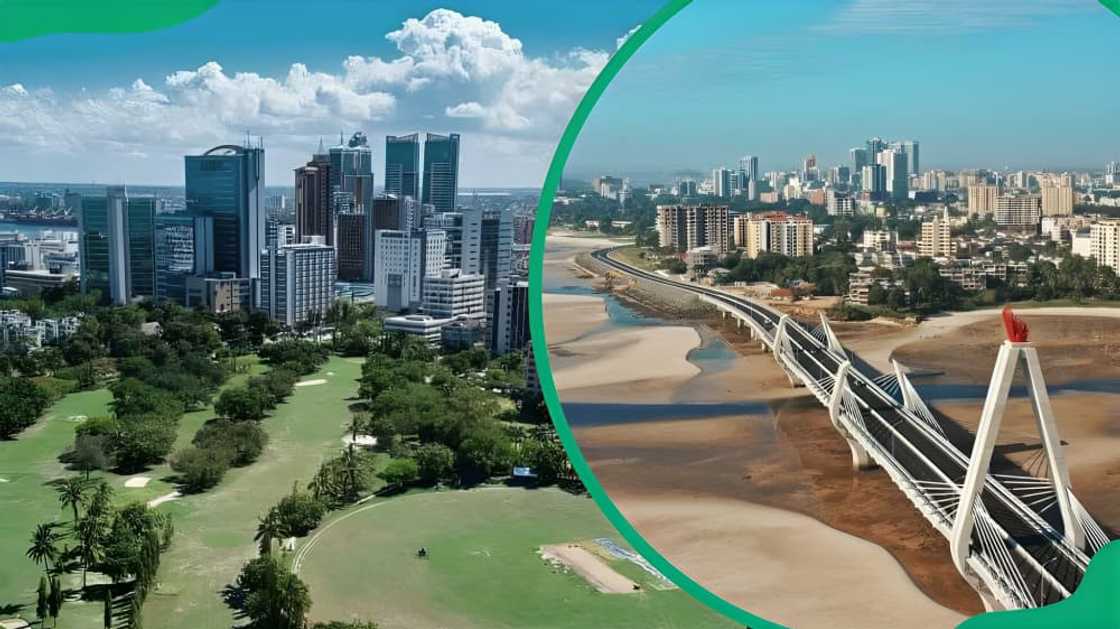
Source: UGC
- Capital: Dodoma
- Official language: Swahili
- Dialing code: +255
- Currency: Tanzanian Shilling
- Population: 65.50 million (World Bank, 2022/23)
- GDP: 75.73 billion USD (World Bank, 2022/23)
With a population of over 65 million, Tanzania's economy has grown steadily. The country's GDP was $75.73 billion. They mainly export cashew nuts, gold, cotton, and coffee. Besides this, Tanzania has made significant investments in tourism industry. Also, other private and government efforts have boosted their economy.
10. Ghana - $73.77 billion
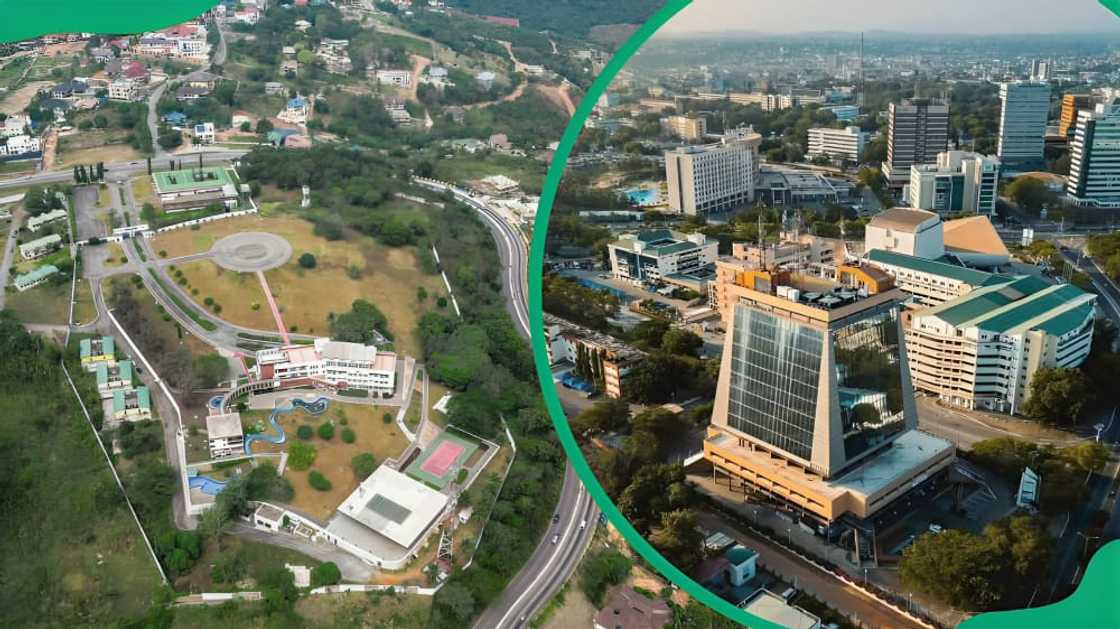
Source: UGC
- Capital: Accra
- Official language: English
- Dialing code: +233
- Currency: Ghanaian Cedi
- Population: 33.48 million (World Bank, 2022/23)
- GDP: 73.77 billion USD (World Bank, 2022/23)
Ghana is home to crude oil, gold, cocoa, and timber exports. The country's economy has taken some time to recover from the COVID-19 pandemic. Ghana's GDP of $73.77 billion in 2022/23 was a 3.1 percent growth rate.
11. Côte d'Ivoire - $70.02 billion
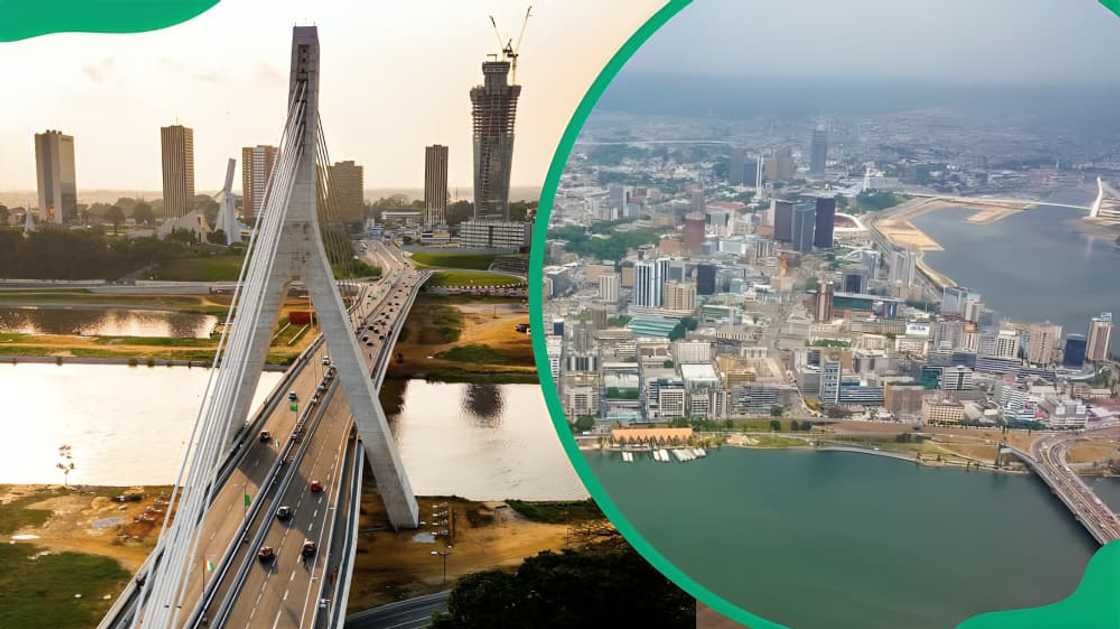
Source: UGC
- Capital: Yamoussoukro
- Official language: French
- Dialing code: +225
- Currency: West African CFA franc
- Population: 28.16 million (World Bank, 2022/23)
- GDP: 70.02 billion USD (World Bank, 2022/23)
With a population of over 28 million people, Cote d'Ivoire is a relatively large country. It is one of the world's largest raw cashew nuts and cocoa exporters. They also export oil and boast a large manufacturing sector. Their economy hit a GDP of $70.02 billion in 2022/23.
12. Democratic Republic of Congo - $64.72 billion
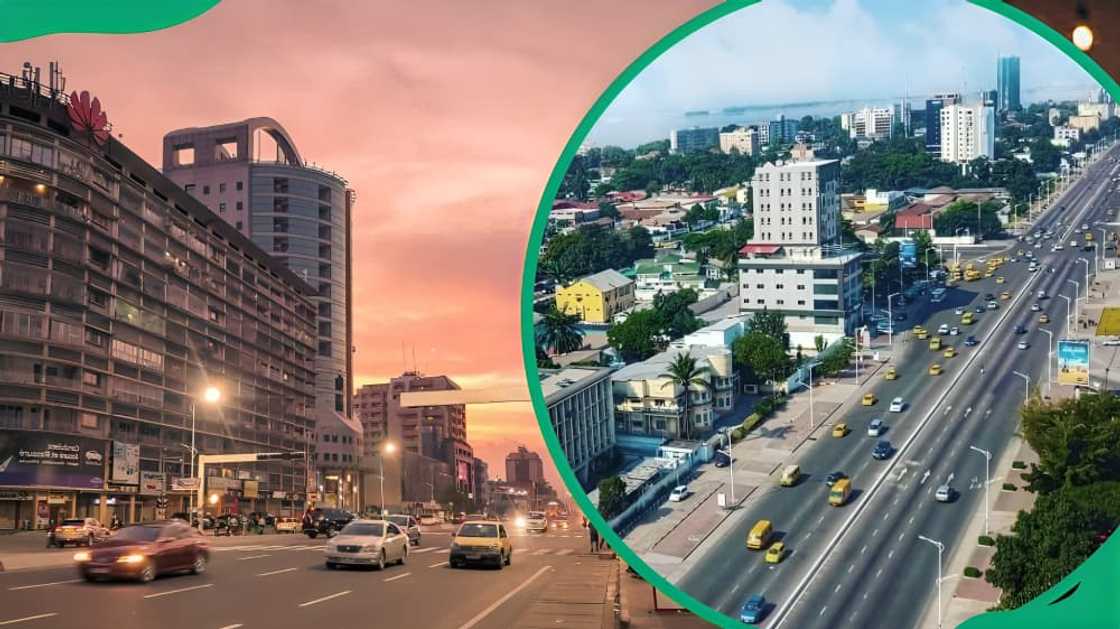
Source: UGC
- Capital: Kinshasa
- Official languages: French, Lingala, Swahili, Kongo, Luba-Kasai
- Dialing code: +243
- Currency: Congolese Franc
- Population: 99.01 million (World Bank, 2022/23)
- GDP: 64.72 billion USD (World Bank, 2022/23)
DRC's minerals and other factors put it on this list of countries with Africa's highest GDP per capita. At its independence in 1960, DRC was the second-largest economy in Africa after South Africa. Corruption, war, and political instability have derailed the country's growth. DRC's economy attained a GDP of $64.72 billion (8.9% growth) in 2022/23.
13. Sudan - $51.66 billion
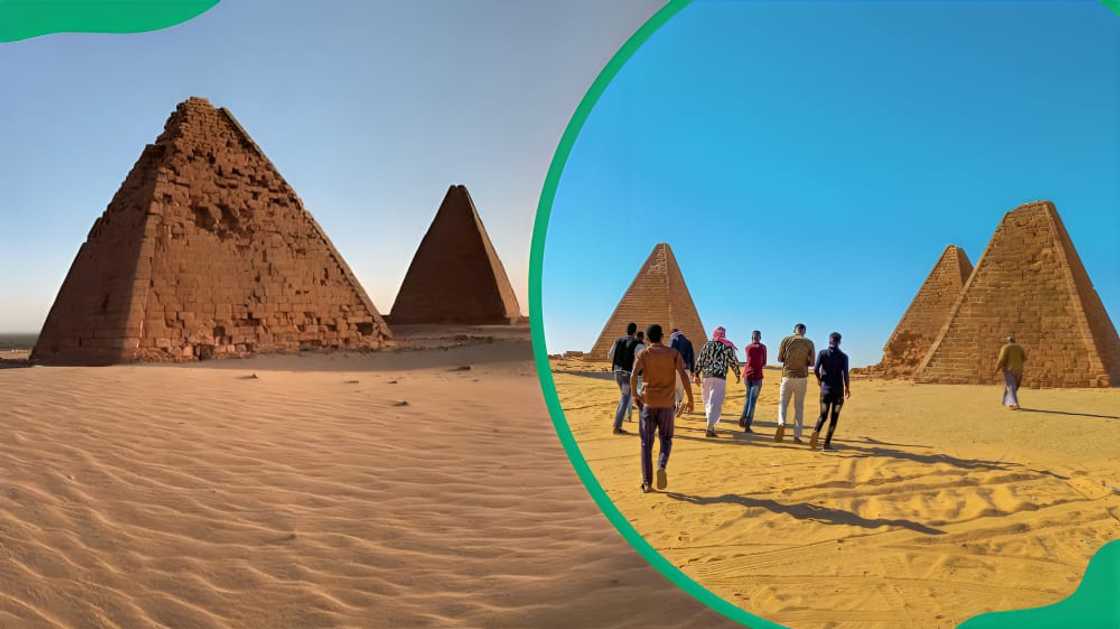
Source: UGC
- Capital: Khartoum
- Official languages: Arabic, English
- Dialing code: +249
- Currency: Sudanese pound
- Population: 46.87 million (World Bank, 2022/23)
- GDP: 51.66 billion USD (World Bank, 2022/23)
Sudan shares borders with Libya, Chad, South Sudan, Ethiopia, and Eritrea. South Sudan broke away from it in 2011 to become the 54th independent African country. Most of Sudan's years have been burdened with conflicts, drastically affecting their capacity to explore their economic potential. Nonetheless, the people never give up on rebuilding their country. In 2022/23, Sudan had a GDP of $51.66 billion.
14. Tunisia - $46.30 billion

Source: UGC
- Capital: Tunis
- Official language: Arabic
- Dialing code: +216
- Population: 12.36 million (World Bank, 2022/23)
- GDP: 46.30 billion USD (World Bank, 2022/23)
Tunisia is one of the smallest African countries, with a population of over 11 million people. They are giants in oil, phosphates, agricultural food products, car parts manufacturing, and tourism exports. In 2022/23, Tunisia achieved a GDP of $46.30 billion, a 2.4% increase.
15. Libya - $45.75 billion
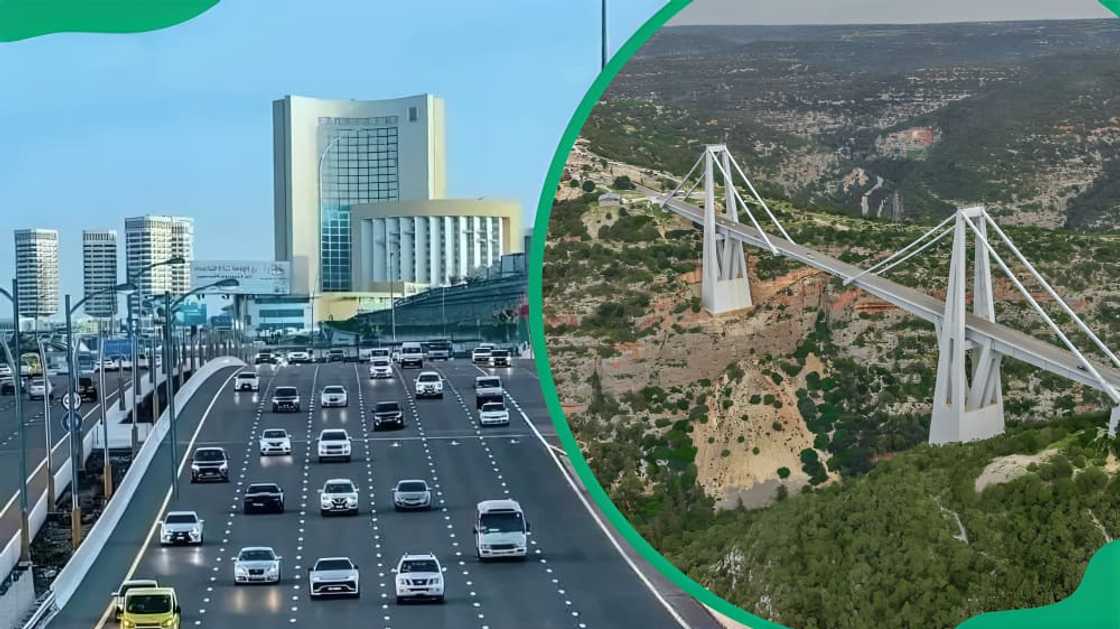
Source: UGC
- Capital: Tripoli
- Official languages: Arabic, Modern Standard Arabic
- Currency: Libyan Dinar
- Population: 6.81 million (World Bank, 2022/23)
- GDP: 45.75 billion USD (World Bank, 2022/23)
Libya has a population of over 6 million people. The country has been striving towards an improved economy since the end of Ghadaffi's regime and the effect of the Coronavirus pandemic in 2020. Its GDP was $45.75 billion in 2022/23.
16. Uganda - $45.57 billion
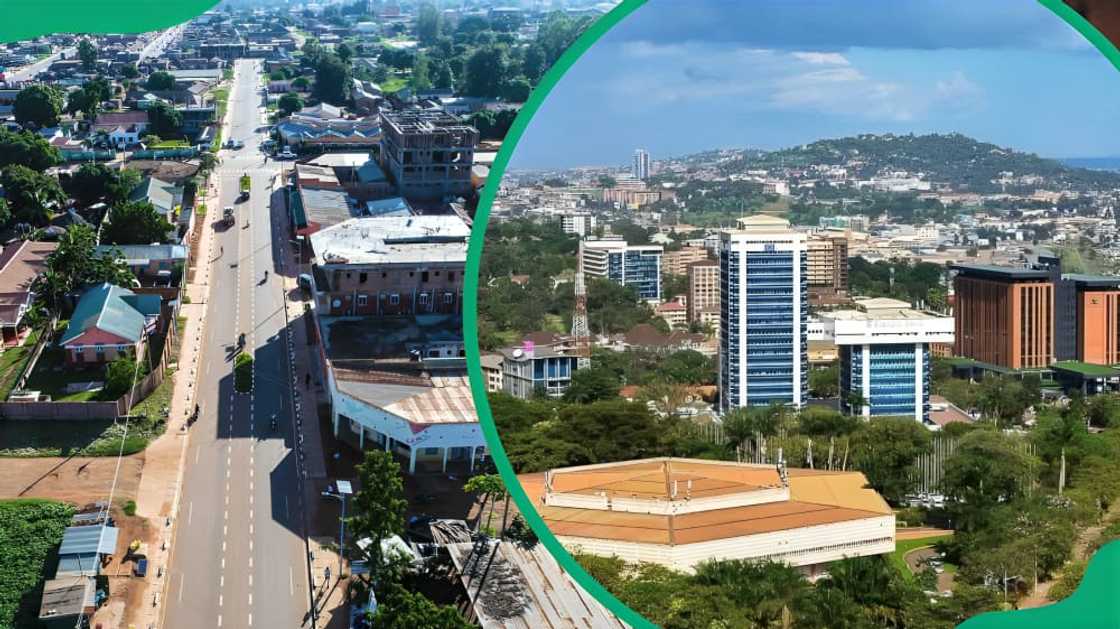
Source: UGC
- Capital: Kampala
- Official languages: Swahili, English
- Dialing code: +256
- Currency: Ugandan Shilling
- Population: 47.25 million (World Bank, 2022/23)
- GDP: 45.57 billion USD (World Bank, 2022/23)
Uganda's population is over 47 million, and the country's economy thrives on agriculture. This economic disposition results from a moderately favorable climate for crops and livestock production. The country achieved a $45.57 billion GDP in 2022/23. Nonetheless, like most African countries, Uganda suffers a host of economic impediments that range from political instability to poor financial decisions and resource management.
17. Cameroon - $43.64 billion
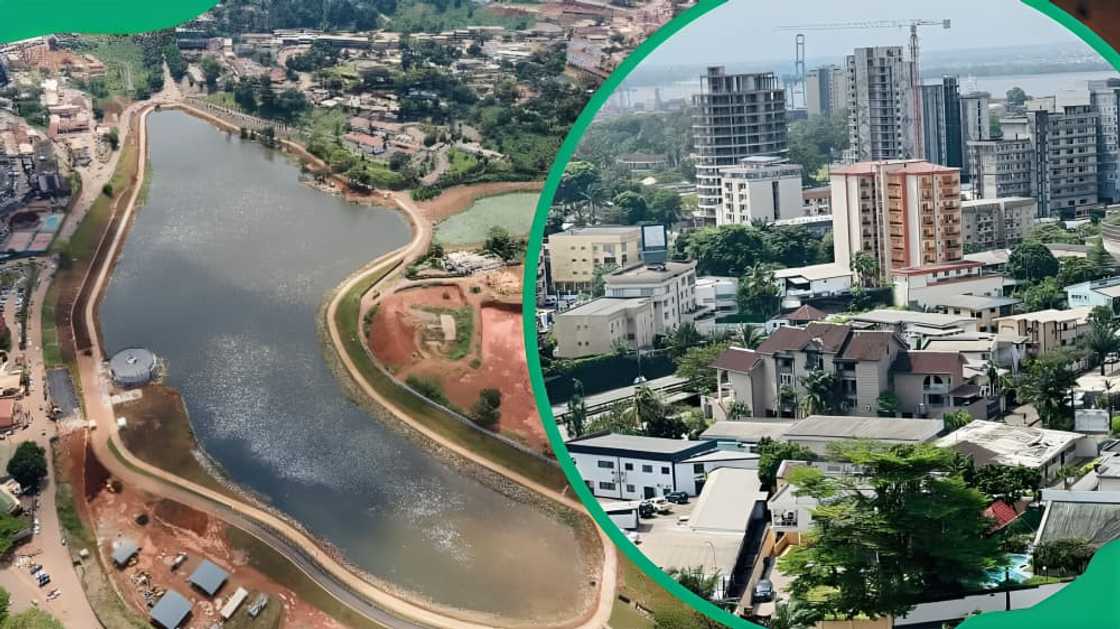
Source: UGC
- Capital: Yaoundé
- Official languages: French, English
- Dialing code: +237
- Currency: Central African CFA franc
- Population: 27.91 million (World Bank, 2022/23)
- GDP: 43.64 billion USD (World Bank, 2022/23)
With over 27 million people, Cameroon has one of Africa's best primary commodity economies. Like the DRC, the nation has had one of the most prosperous economies in Africa since its independence. Cameroon's $43.64 billion GDP record is a 3.6% growth.
18. Zambia - $29.16 billion

Source: UGC
- Capital: Lusaka
- Official language: English
- Dialing code: +260
- Currency: Zambian Kwacha
- Population: 20.02 million (World Bank, 2022/23)
- GDP: 29.16 billion USD (World Bank, 2022/23)
Zambia and Zimbabwe share the Victoria Falls tourist attraction site on the Zambezi River. Manufacturing, mining, and tourism drive the country's economy. Like most countries worldwide, Zambia suffered economically in 2020 due to COVID-19. It, however, almost bounced back and attained a GDP of $29.16 billion in 2022/23.
19. Senegal - $27.68 billion
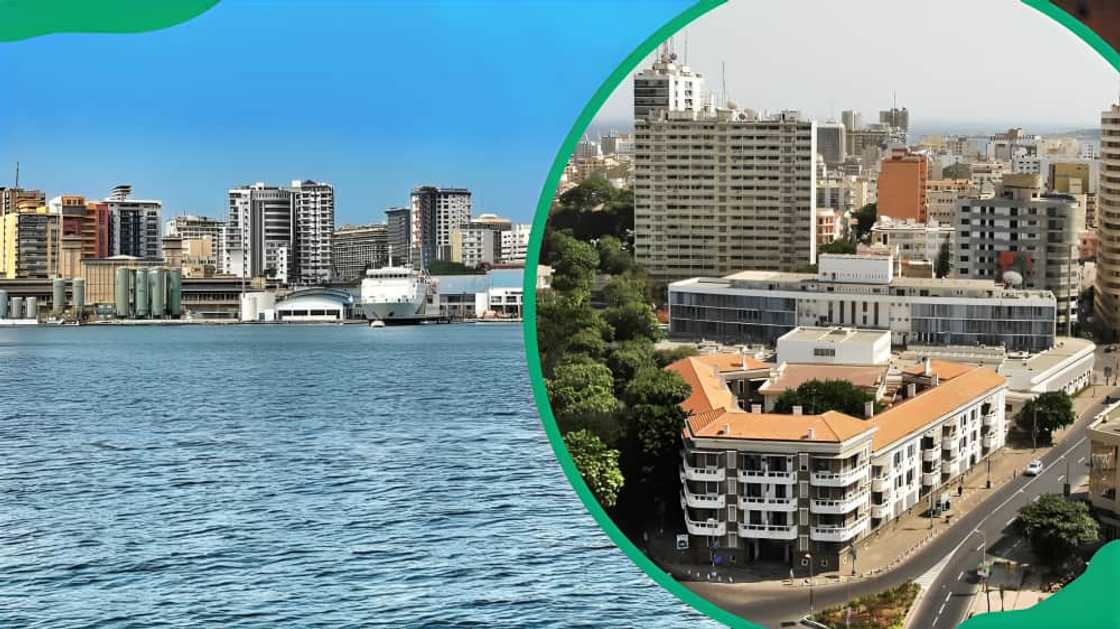
Source: UGC
- Capital: Dakar
- Official language: French
- Dialing code: +221
- Currency: West African CFA franc
- Population: 17.32 million (World Bank, 2022/23)
- GDP: 27.68 billion USD (World Bank, 2022/23)
This country's economy depends on diverse activities, including tourism, fishing, construction, mining, and agriculture. Senegal enjoyed economic growth under President Abdou Diouf's regime (1981 and 2000), for he implemented numerous privatization initiatives. The country attained a $27.68 billion GDP in 2022/23.
20. Botswana - $20.36 billion
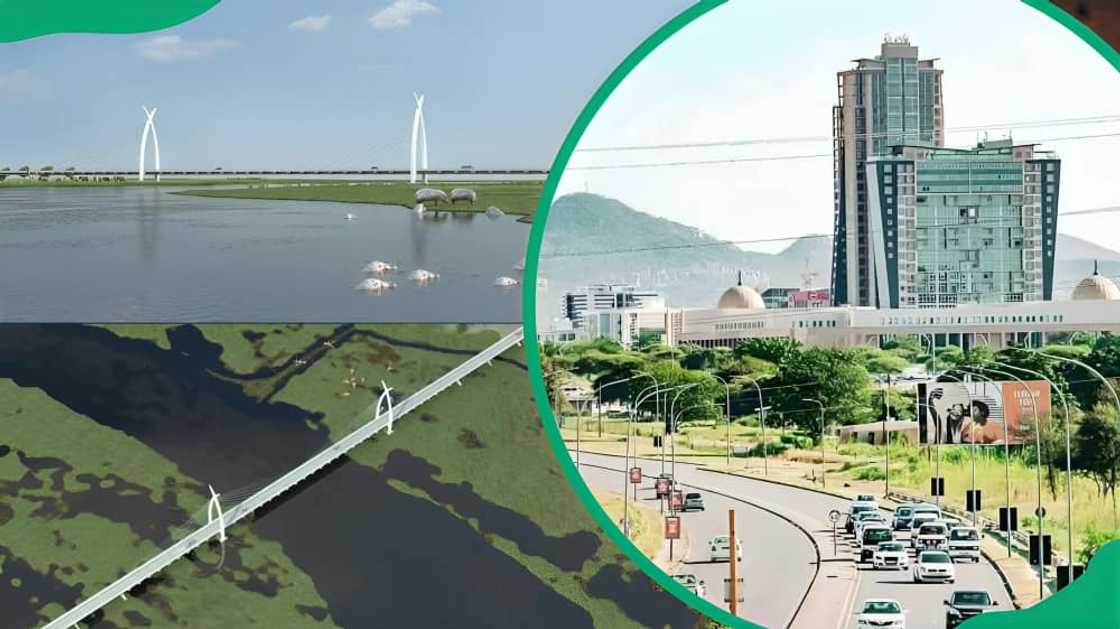
Source: UGC
- Capital: Gaborone
- Official language: English
- Dialing code: +267
- Currency: Botswanan Pula
- Population: 2.63 million (World Bank, 2022/23)
- GDP: 20.36 billion USD (World Bank, 2022/23)
The GDP of Botswana was $20.36 billion in 2022/23. Diamond mining and trading represent over 80 percent of Botswana's export revenues. Besides diamonds, the country also exports copper, nickel, beef, and textiles.
21. Mali - $18.83 billion
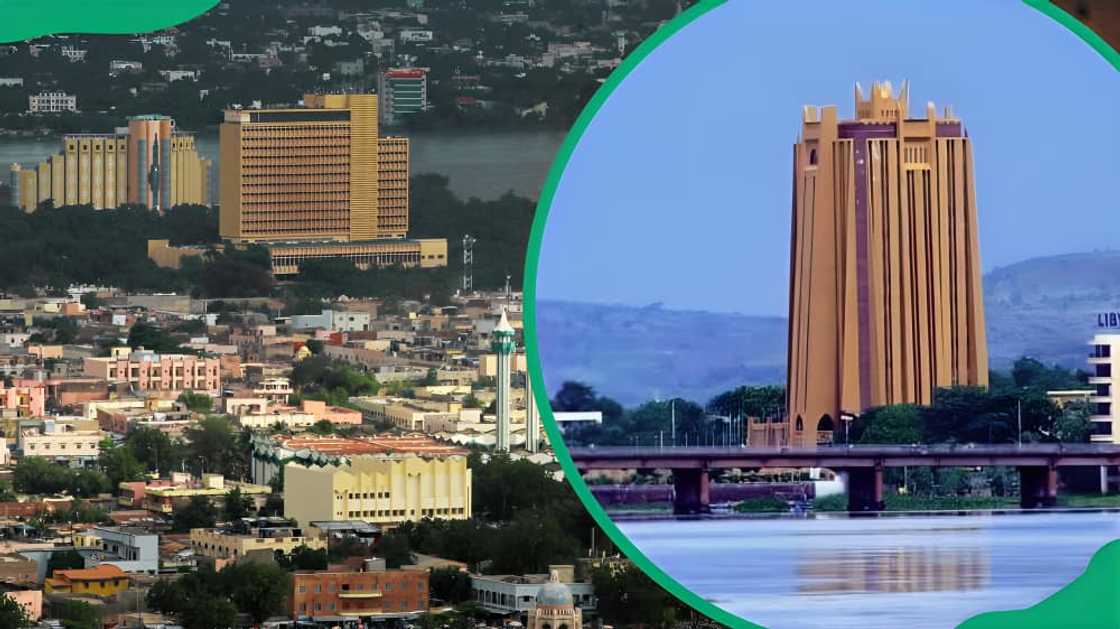
Source: UGC
- Capital: Bamako
- Official languages: Bambara, Soninke, Hassaniya, Fula, Tamasheq, Songhay, Kassonke, Minyanka, and Bobo
- Dialing code: +223
- Currency: West African CFA franc
- Population: 22.59 million (World Bank, 2022/23)
- GDP: 18.83 billion USD (World Bank, 2022/23)
The Republic of Mali's GDP was $18.83 billion in 2022/23. Its great potential wealth lies in mining and farming. The most productive agricultural area in Mali lies along the banks of the Niger River, the Inner Niger Delta, and the southwestern region around Sikasso.
22. Burkina Faso - $18.82 billion
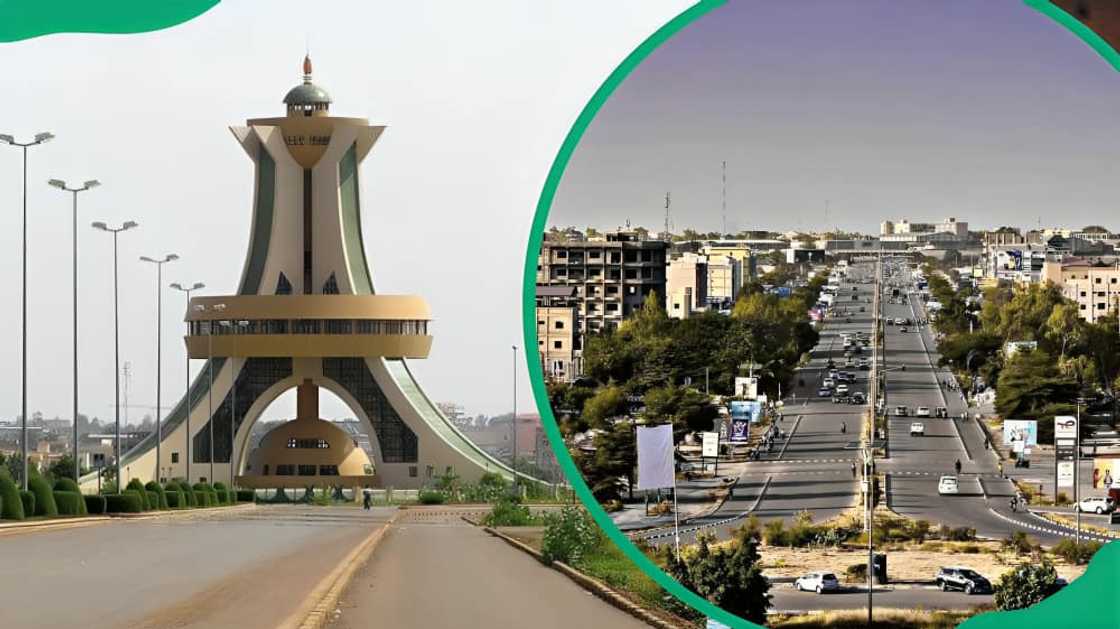
Source: UGC
- Capital: Ouagadougou
- Official languages: Fula, Dyula language, Bissa language
- Dialing code: +226
- Currency: West African CFA franc
- Population: 22.67 million (World Bank, 2022/23)
- GDP: 18.82 billion USD (World Bank, 2022/23)
The GDP in Burkina Faso was worth $18.82 billion in 2022/23. The economy of this landlocked West African country largely relies on agriculture, which employs 80% of the workforce, although gold exports are on the rise
23. Mozambique - $18.41 billion
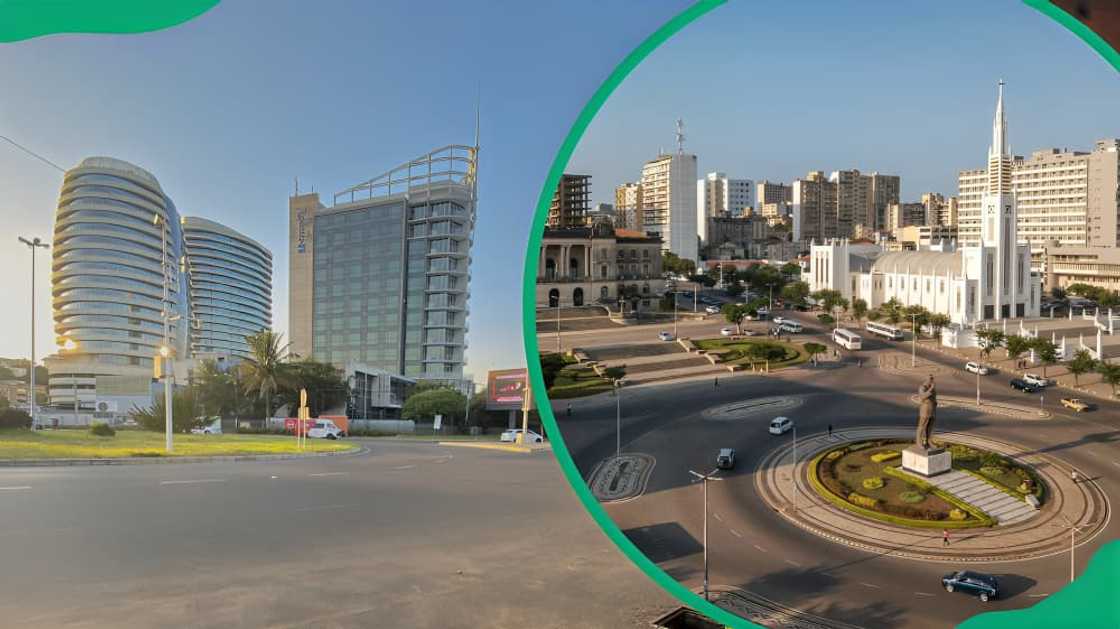
Source: UGC
- Capital: Maputo
- Official language: Portuguese
- Dialing code: +258
- Currency: Mozambican metical
- Population: 32.97 million (World Bank, 2022/23)
- GDP: 18.41 billion USD (World Bank, 2022/23)
Mozambique attained a GDP of $18.41 billion in 2022/23. The country is rich in natural resources, is biologically and culturally diverse, and has a tropical climate. Its main source of income is agriculture. The sector employs more than 80 percent of the country's labor force and provides livelihoods to most inhabitants.
24. Benin - $17.40 billion
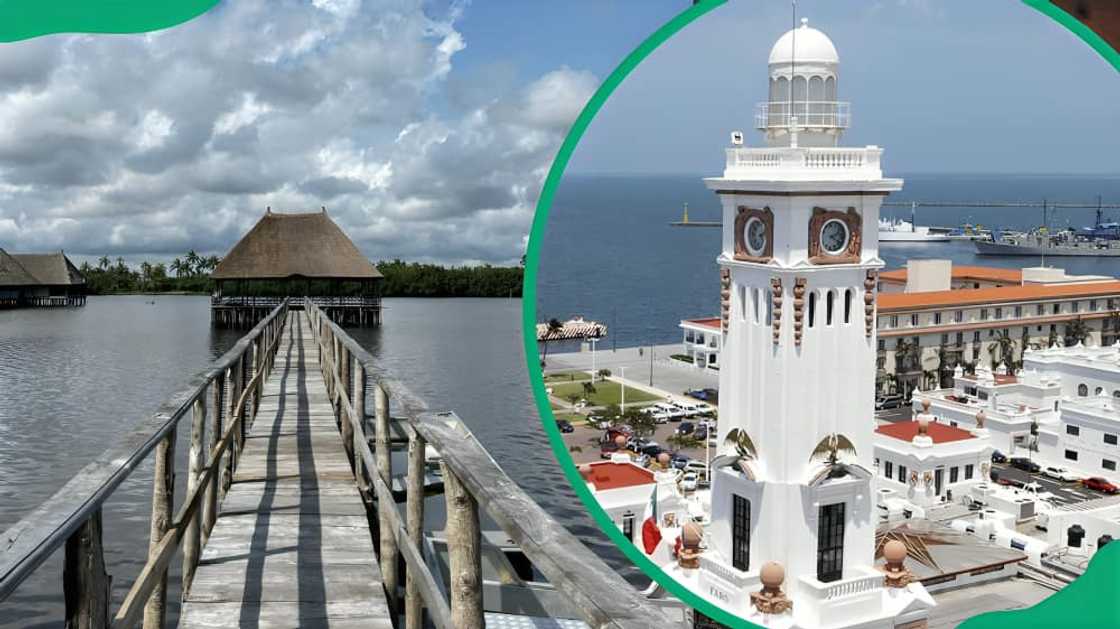
Source: UGC
- Capital: Porto-Novo
- Official language: French
- Dialing code: +229
- Currency: West African CFA franc
- Population: 13.35 million (World Bank, 2022/23)
- GDP: 17.40 billion USD (World Bank, 2022/23)
Vodun (or “voodoo”) religion originated from Beni. Also, the country is home to the former Dahomey Kingdom from circa 1600–1900. Benin's GDP was worth 17.40 billion in 2022/23. The country's main export revenue is from agricultural products, such as cotton, palm oil, cocoa, and coffee, exported to such countries as India, Malaysia, and Bangladesh.
25. Madagascar - $15.3 billion
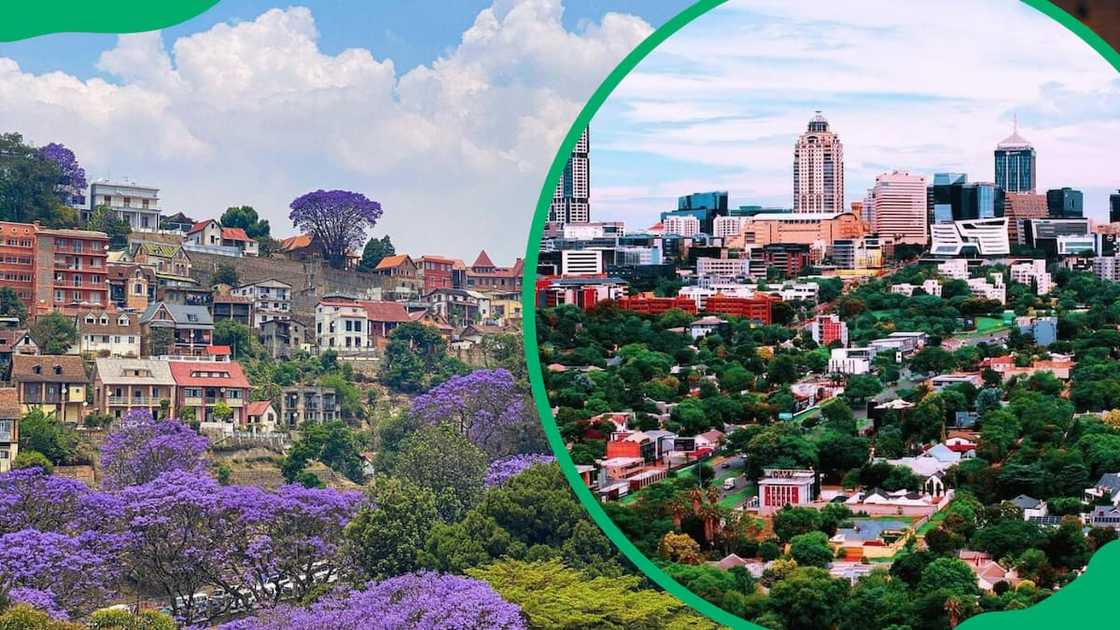
Source: UGC
- Capital: Antananarivo
- Official languages: Malagasy, French
- Dialing code: +261
- Currency: Malagasy Ariary
- Population: 29.61 million (World Bank, 2022/23)
- GDP: 15.3 billion USD (World Bank, 2022/23)
Agriculture, including fishing and forestry, is Madagascar's largest industry and employs 82% of its labor force. The country exports agricultural products like coffee, cloves, cocoa, cashew, and vanilla. Madagascar's GDP was worth $15.3 billion in 2022/23.
What are the top 10 richest countries in Africa?
The following should be the top 10 richest countries in Africa in 2024 if you rank them based on World Banks 2022/23 GDP reports for each country on the continent:
- Egypt
- Nigeria
- South Africa
- Algeria
- Morocco
- Ethiopia
- Kenya
- Angola
- Tanzania
- Ghana
What are the top 20 richest countries in Africa?
Based on World Banks 2022/23 GDP reports for each country on the continent, one can conclude that the 20 wealthiest countries in Africa are:
- Egypt
- Nigeria
- South Africa
- Algeria
- Morocco
- Ethiopia
- Kenya
- Angola
- Tanzania
- Ghana
- Côte d'Ivoire
- DRC
- Sudan
- Tunisia
- Libya
- Uganda
- Cameroon
- Zambia
- Senegal
What are the 10 strongest economies in Africa?
African nations with the highest GDP values in the 2022/23 World Bank data are:
- Egypt
- Nigeria
- South Africa
- Algeria
- Morocco
- Ethiopia
- Kenya
- Angola
- Tanzania
- Ghana
What are the richest countries in Africa by order?
Egypt, Nigeria, South Africa, Algeria, and Morocco are the top 5 richest African countries according to the 2022-23 World Bank GDP data for Africa.
What are the richest countries in Africa per capita?
According to World Bank's GDP data for Africa in 2022-23, Seychelles ($14,653), Mauritius ($9,106), Gabon($8,635), Equatorial Guinea($7,507), and South Africa ($7,055) are the richest countries in Africa per capita.
What is the richest country in West Africa?
Nigeria has the largest economy in West Africa and the entire continent. The country is expanding its economy to manufacturing, communications and technology, financial services, and entertainment.
Why is Nigeria the richest country in Africa?
Nigeria's economy is supported by revenue from oil and gas reserves. It has the largest economy in Africa, but its huge population brings its GDP per capita down.
What is the most powerful African country?
Nigeria, Egypt, and South Africa are the three most powerful African countries. Nigeria has many natural resources, including oil; Egypt has a prime location and great military, while South Africa also has an excellent location.
Which country has the richest people?
Egypt has the wealthiest people in Africa because it is home to the highest number of billionaires. The six top Egyptian billionaires have a combined net worth of $18.3 billion.
Investing in the richest countries in Africa may grow your wealth while also improving their economies. Research the industry and country you are interested in before investing. If possible, see financial and legal experts for help and guidance.
Briefly.co.za made a list of South African millionaires. You can become a millionaire by saving money as early in your working life as possible. Alternatively, emulate what tycoons do and you may get rich faster.
Many self-made millionaires make money from several sources, including salaries, dividends from investments, and income from rental properties and other business enterprises. If one income stream slows down, another can take its place.
Source: Briefly News

Maryn Blignaut (Editor in Chief) Maryn Blignaut is the Editor-in-Chief at Briefly News. She holds a BA in Communication Science from the University of South Africa (2016) and has over seven years of journalism experience. She specialises in digital journalism and feature writing. Maryn completed the AFP Digital Investigation Techniques course and multiple Google News Initiative training programmes. For enquiries, contact maryn.blignaut@briefly.co.za.

Favour Adeaga (Lifestyle writer) Dr. Favour Adeaga is an author, speaker, and coach. He graduated with a degree in Mass Communication from The Polytechnic, Ibadan, Nigeria. He did his internship at The Nation Newspaper and taught diploma students in Newspaper and Magazine courses at the Nasarawa State University, Keffi. He has curated the facts and life hacks category since 2018. Dr Favour is the author of several books available on Amazon. He currently lives in Nigeria. Email: favouradeaga@gmail.com
